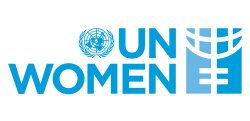Result of Service
Final deliverables: • A training package, including presentations, handouts, and concise guidance materials used during workshops to be retained by the Ombudsperson’s Institute for internal capacity building and sustainability. • A single final analytical report (max. 25 pages) prepared jointly with the Ombudsperson’s Institute, incorporating: o Analysis of the national regulatory framework and practice. o Review of international standards. o Findings from workshops and review of emblematic cases. o Reform recommendations aligned with international standards. • A proposed advocacy strategy for the Ombudsperson’s Institute outlining concrete steps to advocate for the promotion of proposed legislative and practical changes, including stakeholder mapping and potential engagement approaches.
Duties and Responsibilities
Tangible and measurable outputs of the work assignment 1. Capacity building on legitimate limitations and derogations from certain rights under the ICCPR Objectives: To strengthen the capacity of the Ombudsperson’s Institute staff to understand and apply international human rights standards related to limitations and derogations of civil and political rights in the context of national security, prevention of violent extremism and public order (including the Siracusa Principles). • Develop training materials, including presentations, handouts, and concise guidance materials that together can be used as a guide for new staff, on legitimate limitations and derogations under the ICCPR, based on the Siracusa Principles, General Comments of the Human Rights Committee, Special Procedures recommendations, and other relevant sources. • Conduct at least one interactive capacity-building workshop for staff of the Ombudsperson’s Institute, covering: o Key legal standards on permissible limitations of rights, including during a special legal regime (e.g. pandemic, a state of emergency). o Case examples from Kyrgyzstan and other jurisdictions. o Practical exercises to analyze common scenarios in the context of Kyrgyzstan Outcome: The Ombudsperson’s Institute’s staff gain practical knowledge and tools to identify and assess whether restrictions imposed by the State comply with international huma rights standards. Workshop materials are designed to serve as institutional resources for future use. 2. Capacity building and joint analysis of national legislation and practice Objectives: Build the capacity of the Ombudsperson’s Institute’s staff to understand and apply international human rights standards, including the Siracusa Principles, in analyzing national legislation and practice, and jointly prepare a legal analysis report. • Deliver 2–3 practical workshops for designated staff of the Ombudsperson’s Institute on the application of the Siracusa Principles, jurisprudence and General Comments of the UN treaty bodies, and Special Procedures communications in the context of national security and public order. • Facilitation of structured exercises during workshops aimed at joint analysis of national legislation and its application in the areas of national security, public order, and the prevention of violent extremism. Practical case studies and typical examples will be used to assess the compliance of imposed restrictions with international human rights standards. Support to the staff of the Ombudsperson’s Institute in formulating conclusions and recommendations based on the analysis of legal and human rights aspects, as well as concrete examples. • Draft an initial version of a joint analytical report, incorporate feedback from the staff of the Ombudsperson’s Institute and support them in finalizing the text through their internal editorial and clearance processes. Outcome: A finalized joint analytical report including legal and case study analysis of selected criminal law provisions and recommendations for reform to be endorsed and used by the Ombudsperson’s Institute. 3. Development of advocacy and outreach strategy Objective: Support the Ombudsperson’s Institute in developing and implementing an advocacy strategy to promote legal reforms based on the findings of the joint analytical report prepared under Section 2. • Co-design a practical advocacy plan with the Ombudsperson’s Institute, outlining key messages, stakeholder mapping, sequencing of engagements, and risk mitigation strategies. • Conduct a strategic planning session or workshop with the staff of the Ombudsperson’s Institute to validate advocacy priorities and build consensus on implementation steps. • Prepare, together with the staff of the Ombudsperson’s Institute, communication materials based on the joint report (e.g., policy brief, talking points) tailored to different audiences – Parliament, Government, line ministries, judiciary, media, civil society. • Support the Ombudsperson’s Institute to organize and facilitate 1–2 targeted briefings or roundtables to present the findings and recommendations of the report to key stakeholders. • Advise the Ombudsperson’s Institute on how to sustain advocacy over time, including engagement with civil society allies, legal experts, academia and international actors. Outcome: An advocacy strategy and outreach package developed and partially implemented with the Ombudsperson’s Institute to promote alignment of national legislation and practices with international standards, including the Siracusa Principles.
Qualifications/special skills
Advanced university degree (Master's degree or equivalent) in law, human rights, political science, international relations, or related field. A first level university degree in combination with a qualifying experience may be accepted in lieu of the advanced degree. Minimum of 5 years of professional experience in the areas of human rights or legal and policy research. Proven experience in analyzing domestic legislation’s compliance with international human rights standards Experience in analyzing compliance of laws and practices with international human rights law in the context of national security and public order or countering violent extremism is an advantage Strong analytical and drafting skills Experience of working on legal/human rights issues in the Kyrgyz Republic
No Fee
THE UNITED NATIONS DOES NOT CHARGE A FEE AT ANY STAGE OF THE RECRUITMENT PROCESS (APPLICATION, INTERVIEW MEETING, PROCESSING, OR TRAINING). THE UNITED NATIONS DOES NOT CONCERN ITSELF WITH INFORMATION ON APPLICANTS’ BANK ACCOUNTS.





